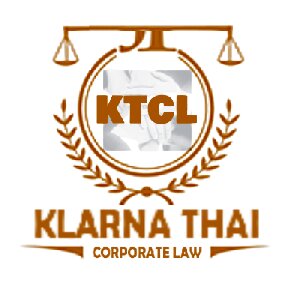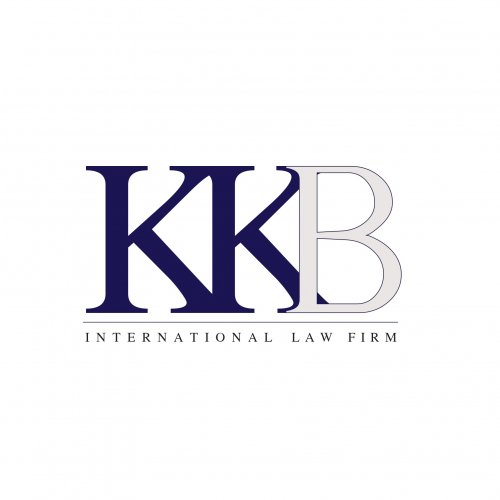Best Pension Lawyers in Thailand
Share your needs with us, get contacted by law firms.
Free. Takes 2 min.
Or refine your search by selecting a city:
List of the best lawyers in Thailand
About Pension Law in Thailand
Pension systems in Thailand primarily revolve around social security benefits, provident funds, and personal retirement savings accounts. The Social Security Fund (SSF) acts as the backbone for pension provision, predominantly catering to employed citizens in the formal sector. Additionally, there are provisions for those working in the informal economy, such as non-profit voluntary savings schemes. The Thai government has been implementing measures to increase coverage, adequacy, and sustainability of pensions to ensure citizens can maintain their quality of life post-retirement.
Why You May Need a Lawyer
Engaging a lawyer for pension-related matters can be crucial for several reasons:
- Complex Regulations: Pension laws can be intricate and confusing, necessitating expert interpretation and advice.
- Disputes: Disagreements over entitlement or the amount of benefits may require legal action or negotiation.
- Retirement Planning: Legal assistance can provide guidance on the best pension plans and related tax implications.
- Beneficiary Issues: Ensuring the rightful beneficiaries receive the pension benefits can sometimes involve legal challenges, particularly in matters of succession.
- Cross-border Concerns: For expatriates or Thai nationals working abroad, understanding how Thai pensions interact with foreign systems can involve legal complexities.
Local Laws Overview
Thailand’s pension system is predominantly governed by the:
- Social Security Act: This act outlines the framework for the Social Security Fund which provides pensions to those in formal employment sectors.
- Provident Fund Act: It facilitates establishments to provide employer and employee-contributed provident funds, which are voluntary savings schemes serving as retirement funds.
- Voluntary Provident Fund (V-PF): This is available to individuals, including those self-employed or working in the informal sector, to encourage personal savings for future retirement needs.
There have been recent reforms aiming at broader coverage, improvement in the management of pension funds, and providing incentives for increased corporate and personal contributions to retirement savings.
Frequently Asked Questions
1. What age am I eligible to receive pension benefits in Thailand?
The standard retirement age for pension benefits under the Social Security Scheme in Thailand is 55 years.
2. How is the pension amount calculated?
For the Social Security pension, the amount is determined based on the insured person’s contribution period and their average monthly wage.
3. Can foreigners participate in Thailand’s pension schemes?
Foreigners employed in Thailand are eligible to participate in the Social Security Fund but must comply with specific employment and residency conditions.
4. Are pensions taxable in Thailand?
The taxation of pension benefits can vary. Generally, pensions are subject to personal income tax, but there are certain exemptions and deductions applicable based on the specific tax regulations.
5. Can pension benefits be transferred abroad?
Pension benefits can be transferred internationally, but this is subject to specific arrangements with financial institutions and prevailing foreign currency regulations.
6. What happens to my pension benefits if I leave Thailand permanently?
If you leave Thailand, you may be eligible to withdraw your pension contributions or continue receiving them through arrangements with a Thai financial institution.
7. Is it possible to nominate a beneficiary for my pension plans?
Yes, both the Social Security and Provident Funds allow for the nomination of beneficiaries to receive benefits in the event of the contributor’s death.
8. What is the Provident Fund and is it mandatory?
The Provident Fund is a voluntary saving scheme for retirement, based on contributions from employees and employers. It is not mandatory but highly recommended.
9. How can I ensure my pension planning is effective?
Consulting with financial advisors and legal experts on retirement planning is crucial to maximizing benefits and efficient management of contributions.
10. What should I do in case of a dispute with the pension provider?
In case of disagreements, contacting a legal expert to advise on rights and possible legal actions is recommended. Mediation or arbitration might also be viable pathways before resorting to litigation.
Additional Resources
For more information or assistance with pension-related legal matters in Thailand, consider reaching out to the following:
- Social Security Office: For official guidance and matters concerning the Social Security Fund.
- Thai Labour Ministry: Offers resources and information regarding employment-linked pension schemes.
- Financial Advisors: They can provide insights into effective retirement planning and investment options.
- Legal Firms Specializing in Employment and Pension Law: These professionals can offer tailored legal assistance.
Next Steps
If you find yourself needing legal assistance concerning pensions in Thailand, consider the following steps:
- Consult a Lawyer: Research and select a qualified lawyer who specializes in pension law to understand your rights and responsibilities.
- Gather Documentation: Collect all relevant documents, such as employment contracts, pension statements, and correspondence, to provide clear information to your legal advisor.
- Schedule a Meeting: Arrange a consultation with the lawyer to discuss your situation in detail, where they can provide specific advice tailored to your needs.
- Consider Mediation: For disputes, alternative dispute resolution methods could be explored before initiating formal legal proceedings.
- Stay Informed: Continuously update yourself on any changes in pension regulations or policies in Thailand to ensure you are making informed decisions.
Lawzana helps you find the best lawyers and law firms in Thailand through a curated and pre-screened list of qualified legal professionals. Our platform offers rankings and detailed profiles of attorneys and law firms, allowing you to compare based on practice areas, including Pension, experience, and client feedback.
Each profile includes a description of the firm's areas of practice, client reviews, team members and partners, year of establishment, spoken languages, office locations, contact information, social media presence, and any published articles or resources. Most firms on our platform speak English and are experienced in both local and international legal matters.
Get a quote from top-rated law firms in Thailand — quickly, securely, and without unnecessary hassle.
Disclaimer:
The information provided on this page is for general informational purposes only and does not constitute legal advice. While we strive to ensure the accuracy and relevance of the content, legal information may change over time, and interpretations of the law can vary. You should always consult with a qualified legal professional for advice specific to your situation.
We disclaim all liability for actions taken or not taken based on the content of this page. If you believe any information is incorrect or outdated, please contact us, and we will review and update it where appropriate.
Browse pension law firms by city in Thailand
Refine your search by selecting a city.














